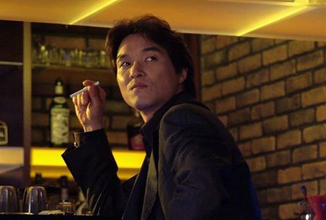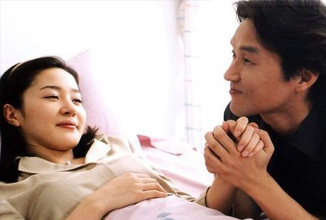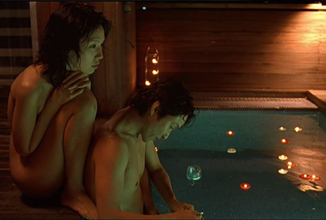"Temptations are fun. You have no idea how much fun they can be. They always start like a game... Why avoid them?"
Based loosely on concepts explored in Nathaniel Hawthorne's 1850 novel of the same name, The Scarlet Letter tells the story of Ki-hoon (Han Suk-kye), a homicide detective who is married to professional cellist Su-hyun (Eom Ji-won) and having an adulterous affair with nightclub singer Ka-hee (Lee Eun-joo). Called to investigate the murder of a businessman he finds that the dead man's alluring and enigmatic wife Kyung-hu (Seong Hyeon-ah) - who found the body and reported the murder to police - is the only suspect and instantly suspects that she has been having an extra-marital affair which he believes drove her to murder. As his investigation gathers pace Ki-hoon begins to see parallels within the case to his own situation and when subsequent events cause his private life to start unraveling he comes face to face with the realisation that there is a price to pay for everything...
From the very first moment we meet Ki-hoon it is clear that he is a very self-assured, somewhat arrogant individual who is used to getting what he wants with no questions asked. He firmly believes that everyone exists solely to do his bidding and that it is his right to have his cake and eat it while always keeping one eye on the relationship buffet cart for any new tasty treats that may appear. Utterly convinced that he's smarter than anyone else he assumes not only that he can get away with anything he wants to but also that no-one can pull the wool over his eyes and it never occurs to him that others may be playing the same game as him and are just as good at it. However he does truly love all the women in his life and though he almost uses that fact as justification for his actions he does genuinely try to do his best by them, albeit within the confines of his determination to fulfill his desires and pleasures completely.
While the Scarlet Letter initially appears to be the story of the homicide investigation, with the main characters' private lives serving as a sub-plot, in reality the exact opposite is the case - mirroring the themes of misconception and secrecy that become prevalent as Ki-hoon's relationships take centre stage. The film really is Ki-hoon's story, he appears in almost every scene and we learn about the women in his life through his eyes, gradually finding that every person he is involved with is putting a self-crafted persona on show to hide who they really are and the things which they don't want others to know.
Ki-hoon's relationship with Ka-hee is detailed in the most depth and she, like Ki-hoon, lives by the pleasure principle but while Ki-hoon indulges himself to supplement his life, Ka-hee is almost a slave to her desires and surrenders to them because they're all she has. She desperately loves him, is aching for her situation to change (dreaming of a normal life with him, a relationship not clouded by secrecy and ultimately a wedding ring on her finger) but knows that she is fighting a losing battle and that Ki-hoon is happy with things just the way they are. As a result she has little alternative but to tell herself that illicit pleasure is better than no pleasure at all and takes whatever she can, whenever she can, all the time unaware that she is destined to become the embodiment of "careful what you wish for."
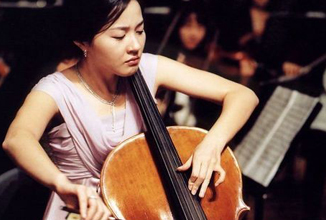 |
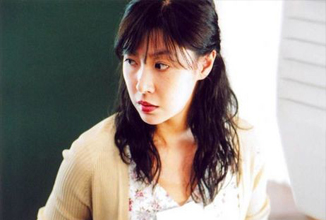 |
Though the roles of Su-hyun and Kyung-hu (Ki-hoon's wife and the sultry murder suspect respectively) are much smaller than either Ki-hoon's or Ka-hee's each has an equally important part to play in proceedings. Su-hyun has previously had an abortion (unknown to Ki-hoon) and her quiet, overly chaste demeanor positively screams that she is actually a very different person to the one she shows to the world while Kyung-hu is desperate to show nothing of herself at all and is such a closed book that she can only be either repressed, hiding something or both. As Ki-hoon's self-serving, pleasure driven actions affect each of his relationships they, in turn, affect each other and eventually start an avalanche which changes all of their lives forever.
Direction:
Byeon Hyeok directs The Scarlet Letter with confidence, successfully conveying the feelings of situations being constantly on the edge of collapse, and his repeated morphing of scenes from one of Ki-hoon's relationships into another serves to build a sense of tangled webs being woven. He also uses incredibly subtle references to link to underlying themes, such as wedding rings being shown repeatedly in the periphery of scenes and seemingly passing comments whose relevance and importance is not seen until much later, and though it could be said that some of the references are so subtle that their importance may be missed on first viewing they do reinforce the idea that all relationships have more to them than first meets the eye and that there are always clues on show for those who choose to look closely.
The film is explicit in its depiction of lust, passion and sex - resulting in criticism, on its cinema release, of the level of nudity present and the graphic nature of certain scenes and situations (the film was subsequently given a Category III rating in Korea) - but the level on show never seems over the top, overly gratuitous or out of place and, to my mind, any toning down of those scenes would have been detrimental to the believability of the stories being told. In fact the only criticism that could be given to the direction is in the early stages of the film where scenes of different relationships merge one-into-another before viewers are fully aware of who each of the characters are, or that the technique is being used, which may lead to some initial confusion.
Production values are high and, like many films depicting lust, use different schemes of colour to contrast the varied relationships. The music used adds to this further with its mixture of classical and opera reinforcing the sense of watching a classic tragedy.
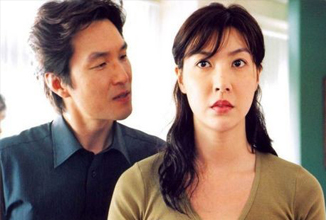 |
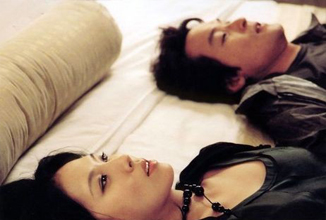 |
Cast:
Han Suk-kyu gives an astonishing performance as Ki-hoon which is easily as polished as any of his other work and reinforces his position as one of the most bankable male actors in South Korea.
Eom Ji-won and Seong Hyeon-ah, as wife and murder suspect, play people who give very little of themselves away and as such have much less emotionally charged roles than the main characters but, that said, each performs admirably.
And finally, Lee Eun-joo's performance as Ka-hee is equally as accomplished as Han Suk-kyu's, but knowledge of events subsequent to the release of the film add a heartbreaking level of poignancy and sadness to it:
The Scarlet Letter premiered at the Pusan Film Festival towards the end of 2004. As already mentioned there was instant criticism from film critics in Korea regarding the explicitness of the film and unjustly a lot of that criticism was aimed directly at Lee Eun-joo. Just a few weeks later (on February 22nd 2005) Lee Eun-joo was dead, having committed suicide in her apartment. She was just 24 years old.
There have since been a lot of rumours surrounding the possible reasons for her ending her life with many claiming that the public's perception of her as a result of the film had driven her into a spiral of depression. A scribbled suicide note was found after her death which, among other things, claimed that she felt that she had lost her dignity but we'll never know the full story for sure. Watching The Scarlet Letter, though more difficult knowing of her death, underlines how talented she truly was and it does stand as a tribute to a beautiful but troubled lady.
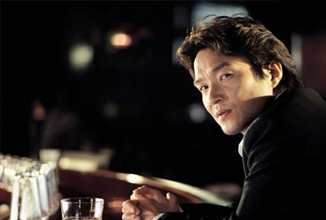 |
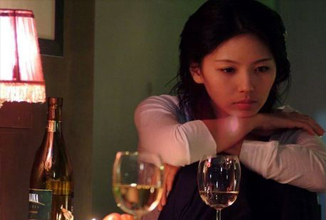 |
Summary:
The Scarlet Letter is an utterly gripping work showing the darker side of love and the consequences of surrendering completely to lust and temptation. It also serves as a tribute to the talent of the late Lee Eun-joo...
Actors: Han Suk-kyu, Lee Eun-joo, Seong Hyeon-ah, Eom Ji-won
Directors: Byeon Hyeok
DVD:
The DVD used for this review is the Korean Region 3 Special Edition which has a crisp, clear anamorphic transfer presented in a 1.85:1 aspect ratio. The sound is a choice of Dolby 5.1 and Dolby 2.0, is clear throughout and does justice to the beautiful classical and operatic musical score. The DVD has excellent subtitles for the main feature but English speaking viewers should be aware that there are no English subtitles available for any of the extras.
DVD Details:
Language: Korean
Subtitles: English, Korean
Country of Origin: South Korea
Picture Format: NTSC
Disc Format(s): DVD
Region Code: 3
Publisher: Spectrum DVD Entertainment
DVD Extras:
Audio commentary
"Making Of" featurette
Cast and crew interviews
Theatrical Trailer/ Promotional material
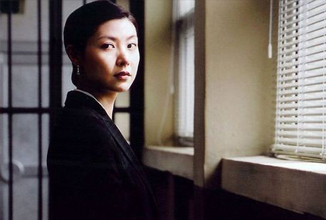 |
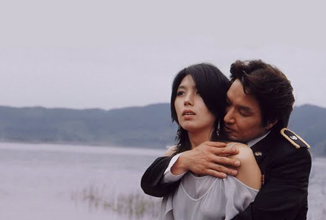 |
|



